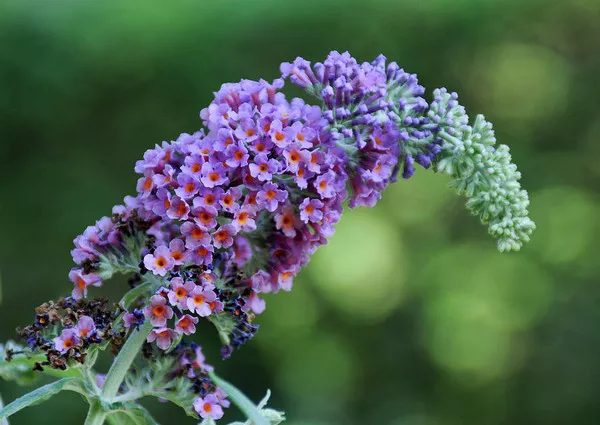Aphids, those minuscule yet formidable pests, can wreak havoc on plants, causing damage to leaves, stunting growth, and even transmitting diseases. Gardeners and plant enthusiasts often find themselves seeking effective ways to rid their plants of these persistent invaders. In this comprehensive guide, we will explore a variety of strategies to combat aphids, from natural remedies to targeted interventions, ensuring that your plants thrive without the interference of these troublesome pests.
Understanding the Aphid Threat
Aphids, also known as plant lice, are tiny, soft-bodied insects that feed on the sap of plants by piercing the plant’s phloem vessels with their needle-like mouthparts. These pests reproduce rapidly, and a small aphid population can quickly become a full-blown infestation. Aphids come in various colors, including green, black, brown, and yellow, depending on the species.
Aphids pose a significant threat to plants for several reasons. Their feeding activities can lead to the distortion of leaves, yellowing, and wilting. Moreover, aphids secrete a sticky substance known as honeydew, which can attract the growth of sooty mold, further compromising the plant’s health. In addition, aphids are vectors for plant viruses, making them a potential source of disease transmission in the garden.
Natural Predators: The First Line of Defense Against Aphids
Nature provides its own arsenal against aphids in the form of natural predators. Beneficial insects such as ladybugs, lacewings, and hoverflies are voracious aphid predators. Ladybugs, in particular, are known to devour large numbers of aphids in both their adult and larval stages.
Encouraging the presence of these natural predators in your garden is an effective and environmentally friendly strategy for aphid control. Planting a diverse array of flowers and herbs that attract these beneficial insects creates a habitat conducive to their activity. By fostering a balanced ecosystem, you allow nature to take its course, keeping aphid populations in check without the need for chemical interventions.
See Also: Is mint a natural insecticide?
Neem Oil: A Natural Aphid Repellent
Neem oil, derived from the seeds of the neem tree (Azadirachta indica), is a potent and natural remedy for aphid control. Neem oil contains compounds that disrupt the feeding and reproductive cycles of aphids, ultimately leading to their demise. Additionally, neem oil has antifungal properties that can help prevent the development of sooty mold associated with aphid infestations.
To use neem oil for aphid control, mix a diluted solution according to the manufacturer’s instructions and spray it directly onto the affected plants, ensuring thorough coverage. Repeat the application every 7-14 days, especially after rainfall or irrigation. Neem oil is considered safe for many plants but, as with any treatment, it’s advisable to test a small area before widespread application.
Insecticidal Soaps: Breaking Down Aphid Defenses
Insecticidal soaps are another effective weapon in the battle against aphids. These soaps, usually based on potassium salts of fatty acids, work by breaking down the protective waxy coating on aphids, leading to dehydration and death. Insecticidal soaps are particularly useful for controlling soft-bodied pests like aphids, whiteflies, and spider mites.
To use insecticidal soap, dilute the product according to the manufacturer’s instructions and spray it directly onto the aphids. Ensure thorough coverage, especially on the undersides of leaves where aphids often congregate. Repeat applications may be necessary, particularly for persistent aphid infestations.
Garlic Spray: A Natural Aphid Deterrent
Garlic, known for its pungent aroma, can act as a natural deterrent for aphids. A homemade garlic spray can be easily concocted by crushing a few garlic cloves and steeping them in hot water. Once the mixture has cooled, strain out the garlic pieces and transfer the liquid to a spray bottle.
Spray the garlic solution directly onto the affected plants, focusing on areas with aphid infestations. The strong scent of garlic serves as a natural repellent, discouraging aphids from feeding on the treated plants. Repeat the application every 7-10 days or as needed, especially after rain or watering.
Horticultural Oils: Smothering Aphids for Control
Horticultural oils, such as neem oil or mineral oil, can be used to smother aphids on plants. These oils create a physical barrier that suffocates aphids and disrupts their feeding activities. Horticultural oils are particularly effective against aphids that are present on the surface of leaves and stems.
To use horticultural oil, mix it with water according to the product’s instructions and spray the solution onto the affected plants. Ensure complete coverage, paying special attention to the undersides of leaves where aphids may hide. Repeat applications may be necessary for severe aphid infestations.
Beneficial Nematodes: Below-Ground Aphid Control
While aphids are primarily known as above-ground pests, some species may also infest the soil around plant roots. Beneficial nematodes, microscopic organisms that parasitize and kill soil-dwelling pests, can be employed to control aphids in the soil.
To use beneficial nematodes for aphid control, follow the instructions provided with the product. Typically, you mix the nematodes with water and apply the solution to the soil around the affected plants. This method is particularly useful for preventing aphid infestations that may originate from the soil.
Companion Planting: Aphid-Repellent Allies
Companion planting involves strategically placing plants together to enhance each other’s growth and deter pests. Some plants are known to repel aphids, serving as valuable allies in your pest control efforts. Herbs such as basil, mint, and chives are known for their aphid-repelling properties.
Interspersing these aphid-repellent herbs among susceptible plants can create a protective barrier. The aromatic compounds released by these companion plants act as natural repellents, discouraging aphids from settling on nearby vegetation.
Conclusion
Successfully combating aphids on plants requires a multi-faceted approach that leverages both natural and targeted interventions. Understanding the threat posed by aphids, promoting the presence of beneficial insects, and utilizing remedies such as neem oil, insecticidal soaps, garlic spray, horticultural oils, beneficial nematodes, and companion planting can collectively create an effective defense against these persistent pests. By incorporating these strategies into your gardening practices, you can ensure the health and vitality of your plants while keeping aphids at bay.


